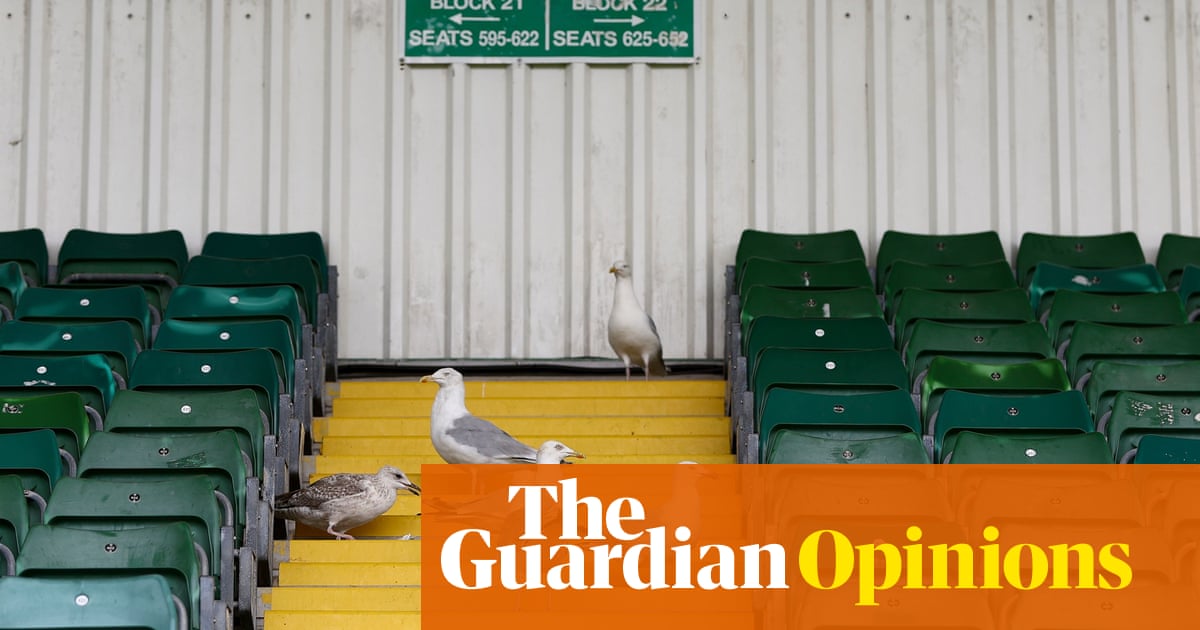
Business confidence is plunging. Retailers are slashing prices in an attempt to drum up sales. Higher energy bills have arrived amid continued anger about the means-testing of winter fuel payments to pensioners.
No question, the government’s message that times are tough and likely to get tougher is cutting through, but not perhaps in the way ministers intended. One snapshot of public opinion this week showed voters would actually prefer Rishi Sunak’s administration to the current one. Given that the Tories suffered the biggest drubbing in their history only three months ago, that’s quite an achievement.
So has Labour blown it? The Tories clearly hope so, and have started to talk up the possibility of returning to power at the next election. The reckless way in which the government has squandered its political capital has convinced some in the Conservative party that their time in the wilderness will be brief.
For this to happen, Keir Starmer’s government would need to face more than teething troubles. Rather, it would have to face a constant uphill struggle – as was the case for Harold Wilson and Jim Callaghan between 1974 and 1979, or for the Tories between 2019 and 2024. Boris Johnson’s honeymoon was cut short by the arrival of the Covid-19 pandemic early the next year, and the Tories were on the defensive thereafter.
To be sure, these are turbulent and unpredictable times. If the years since the global financial crisis of 2008 have shown us anything, it is that the world economy is fragile and prone to crises. One obvious risk is of a major escalation of the conflict in the Middle East that results in sharply higher oil prices. The cost of a barrel of crude has risen sharply since Iran fired missiles at Israel earlier this week. That could go a lot higher.
Even so, the idea that the Tories will face only a brief time in the political wilderness is premature, borderline delusional. The fantasy is based on three misconceptions. The first is that voters will be quick to forgive past mistakes and malfeasance, when all the evidence is that it takes time for parties to be trusted again with the economy. That was true of Labour after the winter of discontent in 1978-9, and was true of the Conservatives after Black Wednesday in 1992. The chaos of Liz Truss’s brief premiership – the rise in mortgage rates and the run on the pound – will linger long in the memory.
A second misconception is that the economy is heading for the rocks. While it would be daft to rule out the possibility of things going seriously wrong, the UK has recovered faster and more strongly than was feared when Truss resigned two years ago this month. In the absence of any new shock, the prospects for the UK economy look reasonably good. Growth is solid, inflation is close to its 2% target, interest rates are gradually coming down, tax breaks are helping to stimulate business investment and the housing market is picking up. Britain is far from booming, but it is in better shape than the other major European economies.
The task for Rachel Reeves in her budget later this month is to build on the progress made since the Truss debacle. The chancellor has made no secret of the fact that tax increases and spending cuts are on the way. She has also hinted that she is prepared to relax the rules governing the public finances in order to borrow to invest. This is something of a mixed message but, one way or another, the budget will clear the air.
The final – and most significant – Tory misconception is that they are more in tune with the public because Britain is by instinct a conservative nation, with a tendency to vote for the main party of the right. This might once have been true, but it is assuredly not the case today. Britain has moved to the left on economic issues in the decade and a half since the financial crisis.
It is not just that support for nationalisation of the railways and the public utilities has surged – although that is true even among Conservative voters. Rather, it is that voters now actively support interventionist policies traditionally championed by parties of the left.
Consider the events of the past five years. Johnson’s success in 2019 was the result of convincing voters in the less well-off regions that the Conservatives would spend lots of public money on levelling up. When the pandemic struck, the government borrowed more than £300bn to keep businesses open and to pay the wages of furloughed workers. When Russia invaded Ukraine, it borrowed heavily again to subsidise energy bills.
These measures were popular, but it was a different story when the Conservatives replaced crisis Keynesianism with a more orthodox rightwing approach. Sunak’s message that tax increases were a necessary response to record levels of peacetime borrowing was not one that the public wanted to hear. Nor, for that matter, did it respond positively when Reeves said she was restricting winter fuel payments to just the poorest pensioners.
What voters seem to want is a return to the Britain of the 1950s and 1960s: full employment, rising living standards, higher public spending, tight controls on migration, stronger trade unions and greater state ownership. There may be a time when there is again a demand for the sort of small-state, low-tax conservatism popularised by Margaret Thatcher. But that day looks some way off.
Larry Elliott is the Guardian’s economics editor












